 Understanding a protagonist’s motivation is one of the critical factors in creating interesting characters for stories. In fact, we will go further than that and say that authors should be doing the same for antagonists as well. But in order to do that we also need to understand how and why motivation works in general otherwise we can’t attribute the right motivators for the correct reasons. For example, if our story involves a love triangle, what might motivate one of the characters to abandon their love in order to make the object of their love happy? In a selfish world like ours that makes no sense. But it is a well-used trope in romance. Which is what this week’s blog is about. It’s a whistle stop tour of motivational theory and what it can do for you as an author.  The first thing to understand is that there is a significant difference between motivation and incentive. The big difference between the two is that an incentive can never be enough for a person to place themselves in jeopardy. After all, there’s no point in being paid £1 million (an incentive) if you are going to end up dead and can’t spend it. But a person may take a dangerous, high paying job if it is the only way to provide security for the ones they love. Love is a motivation, money is an incentive. To put it another way, motivation drives us, but incentives can only attract us. In fiction we are always looking for what drives the character. The lure of wealth may be an incentive for a criminal, but it carries the risk of imprisonment. So, what motivates criminals to take that risk? Understanding that motivation makes the criminal far more interesting than just the lure of wealth, which is a shallow incentive.  Psychologist Abraham Maslow Psychologist Abraham Maslow Theories of motivation are generally grouped under one of two headings: content and process. Content theories focus on what things provide motivation and process theories focus on how motivation occurs. To add depth to a character it isn’t enough to know what motivates them (content) it is also important to know why (process). The two together provide layers of complexity and that makes characters more interesting. Abraham Maslow is the grandaddy of content theory. He theorised that in order to function at a higher level, you first require certain needs to be satisfied. In other words, you can’t create great art if you are starving to death. So, you have to have your hunger satisfied before you can achieve your goal to become an artist. This became known as a “hierarchy of needs”. You may, at this point, be tempted to mention the name of Vincent Van Gogh, who only sold one of his paintings during his lifetime. But he wasn’t actually poor. He had a very well paid job selling art in his brother’s Paris gallery before he left to pursue his own artistic career. He wasn’t penniless at the start of his career – though he may have been by the end.  Maslow's Hierarchy Of Needs Maslow's Hierarchy Of Needs In practice this means that we are first motivated by a need to survive, but if that is secure we can then move on to be motivated by something at a higher level. In fiction this means that if a character is trapped inside a burning building, they aren’t going to be interested in catching the person that struck the match. Only after they have escaped the inferno will they think about that. A vagrant living on the street wouldn’t be motivated enough to help a damsel in distress, because their priority would be their own survival. But they can be incentivised to help the damsel because the incentive (usually money) secures their basic needs. However, if it looks like they may die in the attempt, the incentive would no longer be enough. They would need some other motive, such as love for the damsel. While good Samaritans may exist, they don’t place themselves in danger. They need motivation for that to happen. As can be seen from that example, content-based motivation is a tricky business and if you don’t understand those sorts of basics, your readers won’t believe in your characters.  But what content theory also makes clear is that what motivates us isn’t constant. Our motivation can change in response to circumstances. For example, we may be highly motivated to succeed in our careers, working long hours and totally immersing ourselves in our jobs. Then one day we meet the girl (or boy) of our dreams and suddenly our career isn’t the most important thing in our lives anymore. Winning the heart of the object of our desire is now what is uppermost in our minds, to the extent that we may throw away our career in order to be with that person. That, of course, runs contrary to Maslow’s theory, because if we lose our job we also lose our security. So, it appears that some motivators are more powerful than others, at least for some of the time. Achievement and competition are theories of content motivation studied by David Mclelland. Today this is often portrayed in fiction as a negative thing; highly motivated achievers or competitors are often depicted as criminals or cheats, driven by their desire to win at all costs. Which is odd, because the sports stars we admire the most are highly motivated by competition and achievement. Not only do they compete in their sporting arena, they also compete off the field by gaining more public acclaim. In modern fiction, the highly motivated competitor that you admire so much would be portrayed as a cheat, because that is the trope that fiction writers use. Competitiveness = negative character traits.  Psychologist B F Skinner Psychologist B F Skinner Is competition and high achievement a bad thing? That is for you to decide, but I know of one author who uses competition as a motivator for the success of his heroic characters. When it comes to process theories, there is one that is usable in fiction. It is “reinforcement” theory, developed by B F Skinner. This is based on positive outcomes of certain types of behaviour. In fact, this can be traced back even further, to Pavlov and his dogs, but Skinner is better known for his study of humans. If you can imagine a misbehaving child being given a biscuit (cookie) in exchange for better behaviour, it will soon learn that if it misbehaves biscuits (or cookies) will be forthcoming, so that the reward becomes the motivator for bad behaviour. Extending that theory into adulthood, if a character believes that rewards come from bad behaviour they will continue to behave badly – which is great motivation for criminal characters. The opposite applies as well, of course. If good behaviour results in good outcomes, then a character is motivated towards good behaviour. It may also surprise them when their good behaviour results in a bad outcome, eg their loyalty being betrayed. That could be enough for a previously good person to start behaving badly.  Because when we add emotions to motivation, we start to get a powerful mix. I have already mentioned the power of love to derail a career, but there are plenty of other emotions that can drive motivation: fear, jealousy, hatred, greed, disappointment, pleasure, etc. The most challenging question it is ever possible for an author to ask is what makes one man brave and another a coward. This is especially so in stories that involve death but can also be played out in terms of moral behaviour. Nature has given us three responses to danger: fight, flight or freeze. What makes one person choose to fight, another choose to flee and another to do neither (freeze)? Fear is a natural response to danger, so all three responses should be regarded as equal, because nature gave us the choice even if we don’t make it consciously.  But our high regard for bravery and our contempt for cowardice shows that we don’t regard all three responses as being equal. Very often the individuals who take the actions can’t answer our question. Ask most decorated war heroes why they did what they did, and they are unable to answer, or they fall back on cliches like “duty”. But duty only takes us so far. A soldier standing firm in the line of battle is doing his duty. A soldier that charges an enemy position in order to save a comrade is going far beyond that. It happens in real life, but quite rarely which is why medals such as the Victoria Cross and the Congressional Medal of Honour exist to recognise such actions. But in fiction it is the norm for the protagonist to exhibit that level of bravery.  However, the brave person isn’t unafraid. The brave person is one that overcomes their fear. But what motivation is so powerful that it able to make people face down their fear and do incredibly dangerous things rather than running away? So, what can we give them, in emotional terms, so that they do that? And, more importantly, how can we create a backstory that shows how they developed that quality, based on what we know about motivation? This is where Skinner’s theory becomes important. If, during their developmental years, the character is rewarded for having beliefs and values that we admire, but isn’t rewarded for having beliefs that we detest, the qualities for which they were rewarded will become the motivators. They will also become the barriers when those qualities are undermined. The flawed protagonist is one whose beliefs and values are called into doubt by events, which cause them to question their beliefs and results in an internal conflicts. There is far more to motivation than I have had time to cover in this blog. I recommend further research. How much of that you include in a story is up to you, but layered characters with strong motivations are always going to be of more interest to readers than shallow characters who only respond to incentives. If you have enjoyed this blog, or found it informative, then make sure you don’t miss future editions. Just click on the button below to sign up for our newsletter. We’ll even send you a free ebook for doing so.
0 Comments
 Creativity is a basic skill for being a writer. Your imagination is what creates stories. Every best-selling book started with an idea popping into the head of the author. The author then nurtures and feeds the idea until it starts to gain form and flesh, in the shape of sentences, paragraphs and chapters. No two authors are alike, so the techniques that each author uses to create their story will be different. We are familiar with the terms “plotters” and “pantsers”, but those are only two types that form the extremes of a very broad spectrum. Sometimes, regardless of whether they are plotters, pansters or somewhere in between, authors run out of ideas for taking their story forward. They may call it writer’s block, or they may use another term, but for some reason they just can’t come up with what is going to happen next in their story. But all is not lost. You don’t have to sit there looking at a blank screen (or a blank sheet of paper if you are more “old school”). There are tools and techniques that can be used to stimulate creativity.  I would love it if creative problem solving techniques were taught in schools, as they have a direct application in any workplace. But they aren’t. What you can do, however, is take a few of these techniques and maybe make them work for you as an author. The best creativity comes from working with others. By combining brains and “bouncing” ideas off other people, the whole becomes greater than the sum of its parts. However authors are, by nature, solitary workers. That solitude presents a challenge, but one that is not insurmountable. Last week we heard from Gene Ramsey about how to unlock some of your creativity by taking control of your writing environment. This week we would like to take things one step further and suggest some practical techniques you can use to create new ideas. So, enough preamble, let’s get into the details.  “What if” scenarios. This does what it says on the tin. If you are stuck thinking about what your character should do next, asking “What if they did this …” allows you to test ideas out. The basis of “what if” scenarios is rule breaking. You are going to make your character do something that may be physically impossible, morally or ethically wrong, might get them killed, might get someone else killed and a whole lot of other things that might, normally, prevent you from considering taking the character in that direction. But that is OK. Having created the scenario, you can then challenge the idea not in terms of not doing it, but in terms of still doing it, but in a way that will make it work. You are building up, not knocking down. In creativity it is always about building up, not the other thing. My character can’t do “that” because they would burn to death. OK, how about I find a way of them doing it without burning to death? Can I give them a fireproof suit? Can they find a way to extinguish the flames? Can I use magic to protect them? You get the idea. So, the character will still take the path you imagined with your “what if” scenario, because you have found a way of making it possible. But the key barrier to the what if scenario is assumptions. We make them all the time, sometimes without thinking about them. You have to learn to not only identify assumptions, you have to learn to challenge them. You will be surprised how often assumptions are actually wrong. Scientists and engineers find that out every day. And if you doubt me, remember that only 120 years ago it was assumed that it was impossible for humans to fly.  Quantity, not quality. This is the basis of one of the best-known creativity tools, brainstorming. Basically, you generate idea after idea, without worrying whether they are good, bad or indifferent. Normally this is seen as a team activity, but you can do it yourself. All you need is a pad of sticky notes and a surface on which to stick them. Write your ideas on the notes and slap them on the white board, wall or whatever. Lots of them. They don’t even have to have anything obvious to do with your book. The whole idea is to get your brain spewing out ideas in a constant stream, because amongst the thousands of bad ideas that may come out, there will be a few golden nuggets. When you have finally run out of ideas (you should try to keep going for at least an hour) you can start to group the ideas together in terms of common themes. Those themes can then be examined more closely to see what they have to offer. Maybe you didn’t come up with “the” idea, but perhaps by combining ideas a, b and c together, you may have something you can work with. A similar technique involves writing the ideas on a pad, page after page of them. Then tear up the first two pages, because they will be too “normal”. The real gold will appear on the later pages, when you started to get desperate for ideas and your brain had to keep going, drawing more and more from your subconscious mind.  Flip the Point of View (POV) Authors sometimes get so hung up on what their protagonist is doing (or not doing) that they sometimes forget that there is more than one character in the book. By switching your point of view to see the problem through a different pair of eyes, you may see the flaws in your character’s (your) thinking (the paradigm they (you) are working within) which will allow you to break them out of the status quo. For example, if your protagonist is a cop and the paradigm for a cop (an honest one, at least) is that they can’t break the law, then the way forward for the protagonist might be blocked But if you view the problem from the POV of a lawyer, you might find that there is a loophole in the law that would allow your protagonist a route out of their problem. But you won’t see that loophole if you are still thinking like a cop, so you have to think like a lawyer. You can also look at the story from the antagonist’s point of view. What is the thing the antagonist would least like the protagonist to do? That is what you should have your protagonist do. You can look at the problem through the eyes of several other characters, to see how they would deal with it. Shifting the paradigm in this way is a fundamental in organisational problem solving.  Use Analogies I’ll start this section by asking you a question. What has Formula One (F1) motor racing got to do with the airline industry? The answer is very simple when you think of the question as an analogy. A feature of F1 racing is the speed at which pit crews are able to get a car in and out of the pits for tyre changes etc. It depends on two things: (1) having everything where it is needed, when it is needed and (2) having well practised drills, so everyone does their job instantly without having to think about it. Back in the late 1970s, when cheap air travel started to become a thing, airlines were looking for ways in which they could get more flying hours out of their aircraft, because an aircraft sat on the ground isn’t earning any money. They looked at the problem from the perspective of F1 racing, and realised they could adopt some of the same techniques to get their aircraft turned around at airports far more quickly, saving several hours a day in some cases. Now all the budget airlines use the same techniques to get their aircraft back in the air as quickly as possible. Businesses use analogies of this sort a lot to come up with new ideas to streamline their performance. And you can use the same technique to come up with new ideas for moving your plot forward. So, in terms of solving your character’s problems, what sorts of analogies might you use to stimulate your thoughts?  Zoom Out From The Problem How often have we heard the expression “can’t see the wood for the trees”? We are so stuck down in the weeds of the detail of a problem that we can’t see the bigger picture. So, the solution is to “zoom out”, so we are no longer able to see the individual trees, but we can see the whole forest. And if we can see the forest, we can also trace all the possible paths through it. I’ll give you a hypothetical situation. Your character is stuck at the bottom of a well. There is no way for them to climb out and the rope that holds the bucket is rotted through, so they can’t climb it. They are shouting for help, but there is no one to hear them at the top of the well. Because you are so close to the problem, all you can see right now is a deep dark hole with no way out of it. But if you were to zoom out, you might see a church with a belfry. And the rope that attaches to one of the bells in the belfry is broken. You might also see that on the other side of the forest lives the chief bell ringer. They know about the bell rope and they have a replacement. So, they cross the forest and their path takes them close to the well, where they hear the protagonist calling for help. So, you now have a rope and someone to drop it down the well to rescue your character. But you only got to that point because you zoomed out from the well to take in the wider picture. OK, that is a literal interpretation of the theory. But it does work. If you can detach from the detail of the situation in which you have placed your character and look at the bigger picture of the story and imagine what else COULD be happening, you may well find the solution to your problem. Incidentally, you can combine "zooming out" with the "what If" scenario to make it even more effective.  Mind Mapping Again, this is a long-standing technique that works for many people. Basically, you place the problem in the centre of the page and then map all the different aspects of that problem, to see where the barriers are lying. For example, one branch of the map may relate to your character’s family constraints. Another may relate to their skills and knowledge. A third might relate to the resources available to them. Another may be their emotional entanglements. Another is the mental baggage that they are carrying around. As you explore each branch you should be able to make smaller branches that deal with other aspects of the same problem and you may be able to link some of the issues in one branch with some of the ones in other branches, because they are connected in some way. Once you have a detailed mind map, you should be able to identify possible solutions to what is causing your creative blockage. Mind mapping makes use of the key questions we always ask: who, what, where, when, how and why. Here’s a link that describes mind mapping in more detail. This technique isn’t just useful for overcoming writer’s block. It’s also a great way to get a new story idea worked out in more detail. Conclusion I have only been able to scratch the surface of the wide-ranging subject that is creative problem solving. Enough, I hope, to get you started. But if you go online and search “creative problem-solving tools” you will find a wealth of information. Some resources you may have to pay for, but others are available for free. Images credit: pexels.com If you have enjoyed this blog, or found it informative, then make sure you don’t miss future editions. Just click on the button below to sign up for our newsletter. We’ll even send you a free ebook for doing so. This week we are delighted to post another guest blog by Gene Ramsey. This time he takes a look at how to refresh your creative juices when they are flagging a little. All images courtesy of Pexels.  As a writer, the ability to tap into your creative wellspring is indispensable, yet there are times when the muse seems elusive, and your imagination feels as barren as a desert. In these moments, the need to recharge and revitalize your creative spirit becomes paramount. This article explores practical strategies tailored to help writers and authors break free from creative stagnation, ensuring a vibrant and fruitful engagement with your craft.  Disconnect to reconnect In this digital era, it's essential to consciously detach from the ever-present screens of your smartphone, computer, and tablet. Allow your mind the freedom to meander through thoughts without the interruption of incessant notifications and the relentless influx of information. In the tranquillity of this newfound mental space, as you gaze out the window or simply let your thoughts roam, your next ground-breaking idea might subtly make its presence known.  Establish a Sanctuary for Creativity As a writer, your craft demands undivided attention. Designate a sanctuary where you can isolate yourself from the world's distractions. This dedicated space should invite tranquillity and allow for uninterrupted flow of thoughts. Whether it’s a quiet corner of your home or a secluded part of a local park, make this space your own. Regularly spending time in this creative haven can help you establish a routine that, over time, will signal to your brain that it’s time to engage creatively.  Play Your Way to Innovation Remember, creativity is not all about stern expressions and furrowed brows; it's also about play and exploration. Reconnect with activities that light up your spirit and make you feel alive. Whether it's sketching, playing board games, or crafting, these playful acts can subconsciously stir up ideas and inspire innovative thinking. Allow yourself regular playtime; it’s not frivolous but a fundamental part of nurturing a creative mind.  Harness the Power of Video Creation Venture into the dynamic world of digital storytelling by creating your own videos, opening up a vibrant avenue to communicate your narratives. With a free video creator online, you can experiment and enhance your projects without any financial strain, providing a cost-effective way to bring your visions to life. This tool not only allows you to add audio and animate elements but also enables you to manipulate video speed, enriching your storytelling with a professional flair that captivates your audience.  Revisit Childhood Joys Reengage with the activities you loved as a child to tap into pure, unadulterated creativity. Childhood is a treasure trove of imagination and wonder—qualities that are often muted in adulthood. By revisiting these past joys, whether it’s reading comic books, doodling, or building model airplanes, you can reignite the imaginative spark that once came so naturally and infuse your writing with renewed passion and enthusiasm.  Art as a Pathway to Creativity Use art as a therapeutic way to explore tools to unlock new creative realms. Artistic expression transcends words, allowing emotions and ideas that might be difficult to articulate through writing alone. Engage in painting, sculpting, or drawing to visually express what lies beneath your conscious mind. This not only provides a therapeutic release but also deepens the well of creativity from which you can draw as a writer.  Write Freely and Fluidly Dive into the realm of free writing; unleash your inner stream of consciousness directly onto paper without the constraints of perfect syntax or punctuation. As you write without stopping, you'll navigate past the barriers of writer's block and discover hidden ideas that lurk beneath your structured thinking. This technique not only refreshes your mind but also enriches your narrative skills by revealing unexpected insights and themes.  Dream a Little Dream Your dreams are a direct line to your subconscious, where much of your creativity is housed. Make a habit of keeping a dream journal by your bedside. Upon waking, jot down as much as you can recall about your dreams. Over time, you may find that these abstract and often bizarre dreamscapes serve as excellent fodder for creative projects, offering unique imagery and plot twists that can set your work apart. Recharging your creative batteries as a writer involves a blend of structured solitude and unstructured play. By adopting these practices, you not only enhance your creativity but also enrich your life, making each written word a reflection of a fully lived experience. Rediscover your creative spirit and watch as your writing transforms from mere words to vivid worlds that captivate and inspire. If you have enjoyed this blog, or found it informative, then make sure you don’t miss future editions. Just click on the button below to sign up for our newsletter. We’ll even send you a free ebook for doing so.  We have to talk about blurbs again, don’t we? In writers’ groups on social media, I am still seeing such awful blurbs being posted, inviting feedback, and I have to wonder why authors don’t realise how badly they are showcasing their books. There are so many blogs and books about blurb writing, they all say similar things (including this one) and they are all quite clearly not being read by authors. If they were the blurbs wouldn’t be nearly so bad. I’ll be recommending one of these books later. I suspect that it is because authors view writing a blurb from the author’s end of the telescope. They have lavished weeks, months or even years of effort on their story and they want to tell the reader as much as possible about it in their blurb. But instead of making the book sound exciting, they try to tell the story in 300 – 500 words and that just does not work. When you view the same thing from the readers’ end of the telescope, the blurb looks very different. In the blurb all the reader wants to know is “Will I like this book?”.  Creating a blurb is not a writing exercise, it is an exercise in psychology. Everything about a blurb has to say “this is the best book you will read this year” while actually saying something completely different. Every word has to have meaning for the reader in a way that they don’t even recognise. Which is why trad published authors don’t do their own blurb writing. Trad publishers hire specialists to write blurbs. People who know how the psychology of blurbs works. So, as well as writing, editing, proofreading, cover design and marketing, self-published authors have to add a new skill set to their arsenal, and it’s called copywriting. It is a major skill used in advertising of all types and a blurb is just another form of advertising. The buying of a book is a lengthy process. It may only take a few minutes, but in psychological terms it is a lifetime of decision making.  We call these decisions the “sales funnel”. It’s the basic process that takes place between the reader first seeing your book ("awareness" in the graphic) and the point at which they click (or tap) on the “buy now” button. The thing is that in terms of the “sales funnel” the blurb is only about halfway along the path. (The "interest" section of the graphic). But if the reader isn’t attracted by the blurb, they won’t take the next step along the path (desire), so the sale is lost. Think of a blurb like a bridge across a river. On one side you have the book’s cover, title, subtitle and price, and on the other side you have the free sample (which stimulates desire), next to which is the “Buy Now” button. The Bridge of Blurbs allows the reader to cross from one side of the river to the other. I’ll return to the latter stages of the sales funnel at the end of this blog, just to remind you of what they are. But first I want to talk about the barrier of the “read more” button.  When you look at a blurb on Amazon you are only shown a few lines of text. The more “white space” the author has included, the less text there is to read. Then comes the “read more” button which will reveal the rest of the blurb. Now, ask yourself this question. If you haven’t got the reader’s attention after those few lines of text, will they click on that “read more” button? I think you already know the answer, but just to make it clear – No, they won’t. They will go and look at a different book. Getting the reader to click on the “read more” button is the first challenge to be met by the blurb. It is a barrier to sales that can be as big as the Great Wall of China.  Let’s start with the “tag line” because that is usually the first bit of the blurb the reader sees. So, what makes a good tag line? It is one that forces the reader to ask questions. If they start to ask questions, they will want to know the answers and that means reading the rest of the blurb. I came across this example of a great tagline. It’s from self-published bestselling author Mark Dawson. “MI5 created him. Now they want to destroy him.”* The first thing to notice is that there is clear signal as to the genre of the book. “MI5” can only mean spies and secret agents. If the reader likes those sorts of books, they are likely to read on. But those two sentences also invite the reader to ask questions.  With your “reader” hat on, start asking some questions about those 2 sentences. I got “Who is the ‘him’ that is referred to? Why did MI5 create him? What did they create? An assassin? A Spy? Why do they want to destroy him? What did he do wrong? Will they succeed? And, the 2 sentences together add up to one thing – betrayal. So, the reader is almost bound to feel some sympathy for the character and sympathy is a powerful emotion to invoke. Importantly, they will start to read the rest of the blurb in an effort to find some of the answers to their questions.  That isn’t the only type of tag line you can use. Some authors use a quote from their reviews, and they can work well. Research has shown that click rates for review quotes are quite high. Quotes work because readers identify with other readers. It’s a bit like being part of a club. But reading the tag line is like seeing an attractive person across a crowded room. They look nice, but are they interesting? So, you go across the room to talk to them to find out. After initial introductions, they start to talk.  “I was born in London, but my family moved to Nottingham when I was 5. I went to primary school at … then secondary school at … before starting at university where I studied …. After that I went to work at … My brother went to … and he lived with my Auntie Vi. She’s a …” Are you bored yet? Are you looking over their shoulder to see if there is anyone more interesting you can go and talk to? So, imagine your reader’s boredom when you start to tell them all about your character’s backstory, or the world you built for them, or their extensive family tree and all the other things authors stuff into their blurbs. Yet the author still expects the reader to click on the “read more” button despite the fact that they have already sent the reader to sleep.  The second para has to tell the reader what the story is about. Not the whole thing of course. You introduce the protagonist, drop in tropes that indicate the genre and the type of story within the genre. But above all you introduce the conflict because the conflict starts to raise emotions in the reader. They start to like the protagonist, they start to sympathise with them. In short, they start to engage with them. To do that you have to use words that trigger emotional responses. “Vulnerable” is one such trigger word, often used in romance. “Courageous” is one seen in action adventure, sci-fi, fantasy and more. Below is a list of words that trigger an emotional response. There are many more, of course, but these are seen frequently in blurbs. The reason they are seen so frequently is because they work. You only need to use a couple to get the reader responding at an emotional level. Sympathy is a particularly powerful emotion. If the reader sympathises with the character’s plight, they are going to want to know what happens to the character. Which means that the character can’t be a victim. People don’t actually sympathise with victims that much because victimhood is passive. What they do sympathise with is a victim that is fighting back, because that is active.  If you can start to raise those emotions the reader will click on that “read more” button and you are a long way through the funnel to getting them to buy the book (but still not the whole way). So, the author has to hit the reader between they eyes with the sorts of words that are going to excite their imagination. These are called hooks, because they hook the reader into reading more. A hook at the end of a paragraph encourages the reader to move on to the next paragraph, so you can’t have too many of them. Hooks are often multi-layered. The top layer invites questions, the next layer invites an emotional response, the third layer will raise the level of the drama. But the most important part of the hook is the bit that will appear above the “read more” button. If it is hidden from view it might as well not be there because it may not be seen at all.  Most blogs you will read on blurb writing agree that the “sweet spot” for the length of a blurb is between 250 and 350 words, around 100 (40% or less) of which will be above the “read more” button.. Anything more than that and you will lose the reader, and they’ll move onto the next book in the search results. YOU CANNOT ALLOW THAT TO HAPPEN Many authors put a call to action (CTA) at the end of the blurb. This is not a good idea because the reader is not yet ready to buy. They will see the CTA as being “pushy”.  If that was the right place to put the CTA, Amazon would put one in - and they don’t. Amazon puts the CTA at the end of the free sample, because that is when the final decision to buy will be made (I’ll return to that in a moment). But that doesn’t mean there is no CTA in the blurb at all. Any good blurb will have a CTA, it’s just that it is disguised. The form of disguise is the “cliffhanger”. This can be a statement eg “Her survival is at stake …” or it can be a question eg “Will she survive …” Note the use of an ellipsis rather than a question mark. It leaves things open ended and that is good for keeping the reader engaged.  If the blurb has done its job, the reader will now go to one of two places on the sales page as they take the next step along the sales funnel. They may scroll down to the reviews because, as I said, readers like to know what other readers thought of the book. Notice I didn’t mention the product information, which they will have to scroll past to get to the reviews. That’s where the sales rankings are displayed. Interestingly , readers don’t seem to bother with them too much. Sales ranks seem to bother authors far more. I’m sure readers do look at the product descriptions, but they don’t seem to influence sales. If the book is so new it hasn’t had any reviews, it doesn’t mean the sale has been lost. Readers aren’t stupid. They know that a brand new book won’t have reviews. So, they will take the final step along the sales funnel to the “free sample” (previously called the “look inside” segment). 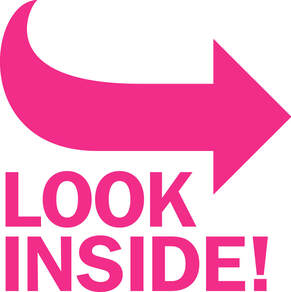 Your book has excited interest and kept the reader on the page, but the free sample stimulates the desire for the book. If the free sample doesn’t keep the reader interested until they reach the “buy now” button, there is no desire and the sale won’t be made. This isn’t universal, of course. A percentage of readers will buy without even reading the blurb, because the book has been recommended to them by someone whose opinion they trust, or they are familiar with the author and like their books. It may even be the long awaited next book in a series. A percentage of readers will buy on the strength of the blurb alone. A percentage will buy because they trust the reviews. But by far the largest percentage of sales come from the free sample. So, why so many words dedicated to how to write a blurb?  Because the blurb is part of the sales funnel and if the reader isn’t captured by it, they won’t get to the reviews or the free sample. They can’t get to the other side of the river without crossing the Bridge of Blurbs. At the top of the blog I mentioned a book on blurb writing that I would recommend. It gets deep into the psychology of blurb writing but it isn’t heavy. It is Robert J Ryan’s book “Book Blurbs Unleased.” If you only ever read one book on blurb writing, make sure it is this one. It’s free to download on Kindle Unlimited. * The use of bold text for the tag line was deliberate. Tag lines should always stand out from the rest of the words. If you have enjoyed this blog, or found it informative, then make sure you don’t miss future editions. Just click on the button below to sign up for our newsletter. We’ll even send you a free ebook for doing so.
 It is a sad fact that around 80% of people who start to write a book, never finish writing it. Why such a high dropout rate? It’s not easy to say as those that don’t finish don’t tend to talk about why they didn’t finish, but we can make a few assumptions which may not be too far off the mark. First there is the time factor. Writing a book is a very time consuming activity and when someone has competing priorities, such as work or family, something has to give and the thing that is easiest to abandon is writing. 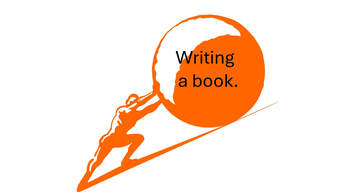 Secondly, some people don’t actually realise that writing a book is quite difficult. They assume that the words will simply flow from their brains to their keyboard of their own volition and in no time at all there will be a 90k manuscript that is all ready to go to the publishers. That is down to a lack of research, of course. Anyone who spends even the smallest amount of time on social media groups dedicated to writing would soon see the posts from frustrated writers and would realise that writing isn’t anything like as easy as it seems. Then comes the realisation that writing the book is only a fraction of the work that is involved in producing a book. Once it is written it has to be edited, market tested (beta readers), edited again, proofread and then the biggest mountain is still ahead: either finding an agent or going self-published. That is enough to put the less motivated off the idea of finishing their book.  Which brings us to the biggest barrier of all for finishing the writing of a book: a lack of basic motivation. It is very easy to come up with an idea for a book. We can be inspired in all sorts of ways, including the “I’m pretty sure I could write a better book than this myself” we have all probably felt after reading a mediocre book. But the world is full of half-finished projects for which the explanation is that the person who started the project didn’t have enough motivation to finish it. Real writers are highly motivated. There can be no doubt about that. There are many reasons they are motivated, and we can take a look at some of them.  The most obvious is that they have a story to tell and writing it down is the best way of telling it, other than pinning someone in a corner and telling it to their face while they try to escape. I’m one of those sorts of writers. Once I have an idea for a story there is no way I can rest until it is written. Sometimes I’m halfway through writing one story when a second comes along and demands attention. It can be a real problem finishing the first story while the second one jumps around in my head trying to get my attention. I think that many real authors suffer from that problem, which is why they produce so many books at frequent intervals. They just can’t stop the stories from flooding out.  The second motivation is that people do it for money. If you are just starting out on your journey as an author, and the possibility of making a lot of money is what is motivating you, then brace yourself, because I have some bad news for you. 70% of all the books ever written never sell more than 100 copies. How motivated do you feel now? There are many reasons why they never sell more copies, and a lack of marketing is one of them, but it shows you what a tough industry you have chosen to enter. Of the remaining 30%, 70% of those will never sell more than 1,000 copies. To put that into context, you have to sell around 30,000 copies to make the equivalent of the “living wage” in the UK, which is about £20k p.a. at time of writing (about $25k or €23k).  Only the smallest percentage of authors will ever make more than the living wage from writing books and the mega rich authors are the ones that get their books turned into movies or TV series. Yes – that could be you. But before you give up your day job, ask yourself what the probability is. The vast majority of authors are the equivalent to the Sunday-morning-in-the-park footballers comparing themselves to Lionel Messi (or Joe Burrow if you are American). 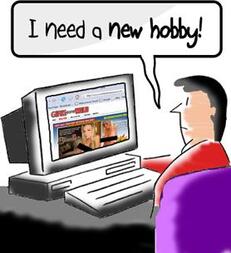 For many authors writing starts out as a hobby; something they like to do to pass the time. The thought of actually publishing a book often doesn’t cross their mind. It is something suggested by someone who has read their “scribblings” as they self-effacingly describe them. Those people tend to be some of the ones in the 70% who never sell more than 100 copies, because they don’t understand that the writing is the easy part. It is the marketing that sells books and that is the difficult part. Thos sorts of people would much rather just keep on with the writing part, so their books never sell. Which is a great pity because they might be potential best-sellers, but no one will ever know.  For some people writing is cathartic. Writing allows people to express their emotions, especially negative ones. Getting things down on the page is a form of release. It can also provide insights into why people feel the way they do, so it is good for their mental health. I have met many authors who have told me that this is why they write. Many of those sorts of books become best sellers, because the emotions expressed are so authentic. 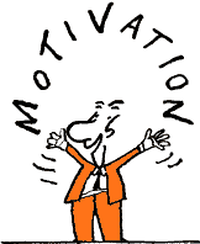 I have described just 4 examples of motivation for writing in this blog, one of which is actually built on a false premise. There are many more I am sure. Why not tell us what motivates you to write? Use the comments section below to share your story. So, if you are just starting out on your writing journey, ask yourself how you are going to keep yourself motivated for weeks, maybe months, on end while you work on your book. Then ask yourself how you are going to keep yourself motivated during the seemingly endless querying process. And, if the querying process doesn’t pay off and you end up self-publishing, ask yourself how you are going to keep yourself motivated while you market your book yourself. 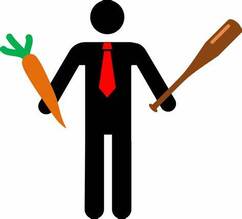 I’d love to be able to answer those questions for you, but in the writing world there is no boss or team to help you stay motivated. There is only you, the device you are writing on and, if you are lucky, a loved one who will keep you supplied with cups of tea and comforting words. But you aren’t really alone. There are thousands, possibly hundreds of thousands, of people in the world just like you. Join a writers’ group either in the real world or the virtual world, because they, too, can provide you with encouraging words. But it will still be down to you to do the rest and there is no one to motivate you to do it except you. If you happen to have some good motivational tips, please feel free to share them in the comments below. If you have enjoyed this blog, or found it informative, then make sure you don’t miss future editions. Just click on the button below to sign up for our newsletter. We’ll even send you a free ebook for doing so. 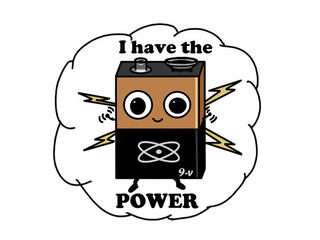 In last week’s blog I discussed what made up a culture, because it is so important when it comes to anchoring both your fictional world and also your fictional characters. In several places I used the word “power” as something that was needed to exert control. Who holds power and how they use it is an important part of culture as it shapes the way people behave, which is why culture is important in a novel. Understanding power is also very important in developing characters and plot, as I hope to demonstrate. Give the right characters the right levels of power in the right form and at the right time, you can do anything in a plot. A lot of that power isn’t actually held by the protagonist or antagonist, it is held by other characters, which makes for a more complex, and therefore more satisfying, plot.  Is your protagonist powerless? Is your protagonist powerless? However, this makes it sound as though there is only one sort of power. It is clearly visible in an antagonist, who arrays all sorts of powerful forces in order to frustrate the protagonist. However, this would suggest that the protagonist has no power of their own. If that were true, then the protagonist could never come out on top in a novel. In order to overcome power, the protagonist must have at least the same level of power. Either that, or they must be able to strip the antagonist of their power, in order to provide an equal “match up”. This can be seen in Lord of the Rings, where Frodo’s allies keep the Dark Lord diverted, concentrating on battles further away, while Frodo and Sam sneak into Mordor by the back door. They use alliances to create a large enough power base to take on Sauron. Stripping power away from the antagonist by a weaker force is demonstrated in two films. The first is Star Wars, where a single X Wing fighter destroys the Death Star. The same trope is used in Independence Day when Will Smith and Jeff Goldblum plant a nuclear device inside the aliens’ mothership, robbing them of their defences. 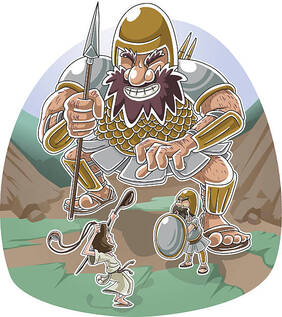 What sort of power did David use to slay Goliath? What sort of power did David use to slay Goliath? Both these acts render the antagonist(s) powerless, allowing the protagonists to triumph. Both of those are really David and Goliath stories told a different way. But when he accepted the challenge of Goliath, David knew something that Goliath didn’t. He knew he possessed “expert power” (see below). And if you think that power games are only the tools of action adventure novelists, then think again. It requires power of some sort to thwart the lovers in a romance. It just isn’t the sort of power that comes from the barrel of a gun (well, not usually). So, what sort of power can the author use to win the conflicts into which we send our protagonists? Studies of power structures have been carried out in business so that they can be understood. But don’t assume that they only apply to business. Businesses are made up of people and power is only of use if it can be used to control or influence people. Politics works pretty much the same way and if you belong to any sort of organisational structure, right down to the village darts team, you will encounter some sort power being used to some degree.  The fact that you don’t always see that power being wielded is a mark of how subtle its use can sometimes be. You don’t always have to plant a nuclear device in an alien spaceship in order to wield power. What types of power are there? Amarjit Singh PEng F.ASCE published a paper in 2009 which analysed this question, drawing on the findings of several other researchers. He studied several sources of power. 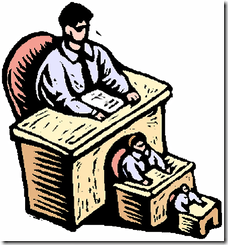 First we have legitimate power, aka positional power. This is power that “comes with the territory”. A Prime Minister or President will wield that sort of power, as will the CEO of a company. This is the sort of power that we are familiar with, because even the Evil Emperor will regard their power as being legitimate. After all, there is no one (they think) that can deny them their power. Crime bosses exercise what they regard as legitimate power, backing it up with violence and the use of weapons when needed. Just like Presidents or Prime Ministers who take their countries to war. The circumstances may be morally different, but the same sort of power is applied to make it happen. The police hold legitimate power, because they are established under laws passed by the government. However, they can also abuse the power invested in them. Within any organisation there are people who hold power. The amount of power may vary depending on their pay grade, but they all have it to some degree. Even the guy or gal on the production line has the power to bring it to halt if they walk off the job. So that one was easily dealt with.  Being able to bestow rewards is a source of power. Being able to bestow rewards is a source of power. Next we have “reward power”. Even a quite junior manager can exercise reward power, deciding who will receive bonuses, who will get a promotion and who won’t, right down to who gets the easy work and who gets to clean out the sewer. That sort of power makes sure people do what the manager wants them to do. A lot of this power is delegated from above, but it is something that can be used or abused. But ordinary members of the public also use reward power. We tip waiters and cab drivers for good service – and they know that if they do a good job they’ll get their tip. (I know this is different in the USA where everyone gets a tip regardless of whether they provided good service, but I’m not in the USA). That means the customer holds the power to control their behaviour. We may offer a Maitre D a small bribe to find us a better table (or any table at all). We also use reward power when we decide to go back to the same restaurant because they provided good service or avoid a restaurant that gave bad service. We call this “consumer power” and we all have it to a certain degree. All we have to do is adapt the concept for our novels. The prospect of a reward can get people to do what we want in a story. Treasure Island is based on the idea that if the crew of the Hispaniola cross the world with Squire Trelawney, there will be a reward at the end of it, when the treasure is found. That is a clear use of reward power in a novel.  Coercive power is fairly self-explanatory. It is based on fear. “Do what I tell you, or it won’t go well for you”. This isn’t seen in the workplace as often as it used to be, employment tribunals have seen to that (in the UK anyway), but it is still found outside the workplace. The coercion doesn’t just have to involve the threat of violence. Blackmail is a form of coercion, as are threats of isolation from the group – what we call “Being sent to Coventry”. There are probably other forms of coercion you can think of. Moral blackmail - convincing people "it's the right thing to do" - is also a form of coercion. What some people think of as persuasion or influencing can also be interpreted as coercion if it is taken beyond certain ill-defined limits. And, of course, coercion is often seen in bad relationships.  In the land of the blind, the one eyed man (or woman) is King. This alludes to expert power. If you know something, or understand something, that nobody else knows or understands, it is a source of power. This is often seen in wage negotiations. Back in the 1970s and 80s IT experts could pretty much write their own salary cheques, because so few businesses knew how to use computers. Today, however, that knowledge is commonplace and IT wage levels aren’t as generous as they once were. So expert power isn't always permanent. In fiction, we often make our protagonists experts in some field or another. Robert Langdon, the protagonist in the Da Vinci Code, is an expert in symbology. Tom Clancy’s protagonist Jack Ryan started out as an expert in interpreting military intelligence. Both are ordinary people at heart but become powerful through their application knowledge. In Lee Child's "Jack Reacher" novels, Jack is an expert in many fields. Even if we don’t make the protagonist an expert like Robert Langdon, we will give them special skills that they can use, such as being experts at unarmed combat. That is a source of power when they get into a fight and allows them to win. As mentioned much earlier in this blog, David had expert power which he used to defeat Goliath. He was an expert in the use of a slingshot, which negated Goliath’s size and strength. In cosy crime novels, amateur detectives outshine their professional counterparts by applying their expertise to solve crimes. Because they aren’t hide-bound by procedure, they can let their expert knowledge take them in directions the professional couldn’t or wouldn’t consider (at least, as far as fiction is concerned they wouldn’t consider). But in the end the amateur still requires the legitimate power of the police to make the actual arrest. So, you have two sources of power working within one book. If the murderer is also an expert in poisons, that is another source of expert power – which gives them the power to commit murder.  Charisma is a source of power. Its proper name is “referent power”. We often hear of charismatic leaders. We might also say that people admire or worship them. We see this a lot with celebrities, who use their referent power to become rich. Its basis is entirely due to how one person views another. If you don’t regard a person as charismatic (like a few politicians I could name), you won’t fall under their influence. People are drawn to charismatic people and are happy to help them. Charismatic people are therefore able to use that as a source of power, using their admirers to do their bidding. The only difference between the charismatic protagonist and the charismatic antagonist is what they ask their admirers to do. Robin Hood is probably the best known charismatic protagonist (if you are religious, it may be Jesus or Mohammed). In romance a common trope is the charismatic person who holds one of the star-crossed lovers in thrall. One way that charismatic power can be thwarted is to expose a character defect that hasn’t previously been visible, such as a cruel streak. It breaks the spell and sends the lover back to the one he/she should really be with.  You scratch my back and I’ll scratch yours, is otherwise called “reciprocal power”. It can also be called “resource power” as it usually involves a trading of resources. It requires both characters to have something that the other character needs. How valuable the resources are will influence the balance of power. In this case valuable doesn’t refer to intrinsic value, it refers to how much the character needs the resource. If you have the gun I need in order to go after the antagonist, I might be quite generous in what I offer in exchange. But the resource doesn't have to be physical. Politicians, for example, trade favours in order to gain support and to form alliances. In LOTR each of the fellowship has something that Frodo needs to help him get to Mordor. The most obvious is the magic wielded by Gandalf, but Frodo would have been helpless in the caverns of Moria without Gimli's knowledge. Aragorn is the King behind whom men rally. Even Sam Gamgee has something that Frodo needs – his bravery, steadfastness and determination. Without Sam, Frodo would never have made it into Mordor. And, in exchange for the resources that each of the fellowship provides, Frodo does the dirty work for them and carries the ring. There is even a conference at Rivendell where the negotiations are held, though it isn’t depicted as a negotiation.  What sort of power do you have? What sort of power do you have? So, as you can see, power isn’t something that is one sided. In addition, the sum of the power that the protagonist can bring to bear must be at least equal, if not greater, than the power of the antagonist. Either that, or you have to find a way of stripping the antagonist of their power. James Bond has to kill a lot of henchmen before he can go mano y mano with the villain, which is no different than getting a nuclear device onto an alien mothership. As an exercise, you might want to analyse the sort of power you are able to wield in different circumstances. For example, how much legitimate power do you have? How much resource power? How much reward power and how much referent power? If you are the only person in your place of work who knows how to use the photocopier, you have "expert power" - at least until someone else reads the user manual. Although we might not always feel it, we are all able to use power at some time in our lives, even if it is only every few years at the ballot box. If you have enjoyed this blog, or found it informative, then make sure you don’t miss future editions. Just click on the button below to sign up for our newsletter. We’ll even send you a free ebook for doing so. 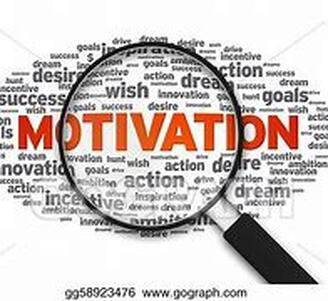 In last week’s blog we asserted that understanding a protagonist’s motivation was one of the critical factors in creating interesting characters for stories. In fact, we went further than that and said authors should be doing the same for antagonists as well. But in order to do that we also need to understand how and why motivation works in general otherwise we can’t attribute the right motivators for the correct reasons. For example, if our story involves a love triangle, what might motivate one of the characters to abandon their love in order to make the object of their love happy? In a selfish world like ours that makes no sense. But it is a well-used trope in romance. Which is what this week’s blog is about. It’s a whistle stop tour of motivational theory and what it can do for you as an author.  Motivation or Incentive? Motivation or Incentive? The first thing to understand is that there is a significant difference between motivation and incentive. The big difference between the two is that an incentive can never be enough for a person to place themselves in jeopardy. After all, there’s no point in being paid £1 million (an incentive) if you are going to end up dead and can’t spend it. But a person may take a dangerous, high paying job if it is the only way to provide security for the ones they love. Love is a motivation, money is an incentive. To put it another way, motivation drives us, but incentives can only pull us. In fiction we are always looking for what drives the character. The lure of wealth may be an incentive for a criminal, but it carries the risk of imprisonment. So, what motivates criminals to take that risk? Understanding that motivation makes the criminal far more interesting than just the lure of wealth, which is quite shallow. 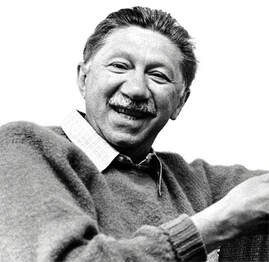 Psychologist Abraham Maslow, the granddaddy of content based motivational theory. Psychologist Abraham Maslow, the granddaddy of content based motivational theory. Theories of motivation are generally grouped under one of two headings: content and process. Content theories focus on what things provide motivation and process theories focus on how motivation occurs. To add depth to a character it isn’t enough to know what motivates them (content) it is also important to know why (process). The two together provide layers of complexity and that makes characters more interesting. Abraham Maslow is the granddaddy of content theory. He theorised that in order to function at a higher level, you first required certain needs to be satisfied. In other words, you can’t create great art if you are starving to death. So, you have to have your hunger satisfied before you can achieve your goal to become an artist. This became known as a “hierarchy of needs”. 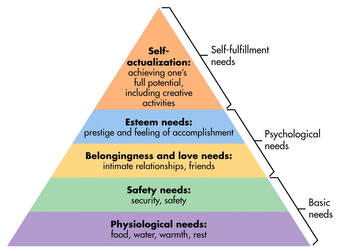 Maslow's hierarchy of needs. Maslow's hierarchy of needs. You may, at this point, be tempted to mention the name of Vincent Van Gogh, who only sold one of his paintings during his lifetime. But he wasn’t actually poor. He had a very well paid job selling art in his brother’s Paris gallery before he left to pursue his own artistic career. Van Gogh wasn’t penniless at the start of his career – though he may have been by the end. In practice this means that we are first motivated by a need to survive, but if that is secure we can then move on to be motivated by something at a higher level. In fiction this means that if a character is trapped inside a burning building, they aren’t going to be interested in catching the person that lit the match. Only after they have escaped the inferno will they turn their attention to that. A vagrant living on the street wouldn’t be motivated enough to help a damsel in distress, because their priority would be their own survival. But they can be incentivised to help the damsel because the incentive (usually money) secures their basic needs. However, if it looks like they may die in the attempt, the incentive would no longer be enough. They would need some other motive, such as love for the damsel. While good Samaritans may exist, they don’t place themselves in danger. They need motivation for that to happen.  GET MOTIVATED! GET MOTIVATED! As can be seen from that example, content based motivation is a tricky business and if you don’t understand those sorts of basics, your readers won’t believe in your characters. But notice the sorts of things that appear in Maslow's hierarchy of needs diagram from the third level upwards. there's plenty of stuff hidden behind those short statements with which you can play in order to provide your characters with motivation. But what content theory also makes clear is that what motivates us isn’t constant. Our motivation can change in response to circumstances. For example, we may be highly motivated to succeed in our careers, working long hours and totally immersing ourselves in our jobs. Then one day we meet the girl (or boy) of our dreams and suddenly our career isn’t the most important thing in our lives anymore. Winning the heart of the object of our desire is now what is uppermost in our minds, to the extent that we may throw away our career in order to be with that person. That, of course, runs contrary to Maslow’s theory, because if we lose our job we also lose our security. So, it appears that some motivators are more powerful than others, at least for some of the time.  Achievement and competition. Achievement and competition. Achievement and competition are theories of content motivation studied by David Mclelland. Today this is often portrayed in fiction as a negative thing; highly motivated achievers or competitors are often depicted as criminals or cheats, driven by their desire to win at all costs. Which is odd, because the sports stars we admire the most are highly motivated by competition and achievement. Not only do they compete in their sporting arena, they also compete off the field by consistently trying to beat their own best performances, in the gym for example. Name the sports star you admire the most and you are naming a highly motivated competitor, but modern fiction suggests you will also be naming a cheat. I think we need to change that stereotype with positive competitive role models in fiction. Is competition and high achievement a bad thing? That is for you to decide, but I know of one author who uses competition as a motivator for the success of his heroic characters. 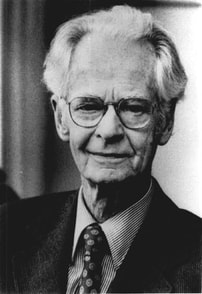 Psychologist B F Skinner Psychologist B F Skinner When it comes to process theories, there is one that is usable in fiction. It is “reinforcement” theory, developed by B F Skinner. This is based on positive outcomes of certain types of behaviour. In fact this can be traced back even further, to Pavlov and his dogs, but Skinner is better known for his study of humans. If you can imagine a misbehaving child being given a biscuit in exchange for better behaviour, it will soon learn that if it misbehaves biscuits will be forthcoming, so that the reward becomes the motivator for bad behaviour. Extending that theory into adulthood, if a character believes that rewards come from bad behaviour they will continue to behave badly – which is great motivation for criminal characters. The opposite applies as well, of course. If good behaviour results in good outcomes, then a character is motivated towards good behaviour. It may also surprise them when their good behaviour results in a bad outcome, eg their loyalty being betrayed. That could be enough for a previously good person to start behaving badly. Because when we add emotions to motivation, we start to get a powerful mix. I have already mentioned the power of love to derail a career, but there are plenty of other emotions that can affect motivation. The most challenging question it is ever possible for an author to ask is what makes one man brave and another a coward. This is especially so in stories that involve death but can also be played out in terms of moral behaviour. Nature has given us three responses to danger: fight, flight or freeze. What makes one person choose to fight, another choose to flee and another to do neither (freeze)? Fear is a natural response to danger, so all three responses should be regarded as equal, because nature gave us the choice. But our regard for bravery and our contempt for cowardice shows that we don’t regard all three responses as being equal. Very often the individuals who take the actions can’t answer our question. Ask most decorated war heroes why they did what they did, and they are unable to answer, or they fall back on clichés like “duty”. 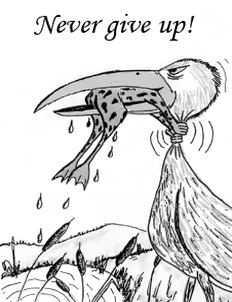 But duty only takes us so far. A soldier standing firm in the line of battle is doing his duty. A soldier that charges an enemy position in order to save a comrade is going far beyond that. It happens in real life, but quite rarely which is why medals such as the Victoria Cross and the Congressional Medal of Honour exist to recognise such actions. But in fiction it is the norm for the protagonist to exhibit that level of bravery and persistence. So, what can we give them, in emotional terms, so that they do that? And, more importantly, how can we create a backstory that shows how they developed that quality, based on what we know about motivation? This is where Skinner’s theory becomes important. If during their developmental years the character is rewarded for having beliefs and values that we admire, but isn’t rewarded for having beliefs that we detest, the qualities for which they were rewarded will become the motivators. They will also become the barriers when those qualities are undermined. The flawed protagonist is one whose beliefs and values are called into doubt by events, which cause them to question their beliefs and results in internal conflicts. The loner cop who drinks way too much whisky didn't start out that way. Something made them like that and the author gets to decide what it was. There is far more to motivation than I have had time to cover in this blog. I recommend further research. How much you include in a story is up to you, but layered characters with strong motivations are always going to be of more interest to readers than shallow characters who only respond to incentives. If you have enjoyed this blog, or found it informative, then make sure you don’t miss future editions. Just click on the button below to sign up for our newsletter. We’ll even send you a free ebook for doing so.  How long should a book be if the author wants it to sell? I had better state up front that I’m not going to attempt to actually provide a definitive answer to the question I have posed. I’m entering into what might be regarded as a philosophical discussion on the subject and any views I express are merely opinions. But it is quite an important question because the answers, right or wrong, may strongly influence whether or not a reader actually purchases a book. If you use Google to try to find the answer you’ll get various opinions. But, generally, a novel is expected to be between 80,000 and 120,000 words. This is based on hard copy books, of course. Less than 80,000 words and it’s going to look pretty malnourished sitting on the bookshelf in W H Smiths (or Barnes and Noble) alongside its fatter neighbours. Size gives an impression of value for money, even if it is no guarantee of quality of writing.  Once you get over 120,000 words, however, the publisher has a different problem. Paper costs money and profits will be reduced if publishers have to spend more money on paper but still have to charge the same price for the book in order to remain competitive. Most books sell at the same retail price regardless of size; about £18.99 (call it $20) for a hardback book and £9.99 for a paperback. Those prices are for bestselling authors, of course. Kindle books can run from 99p right through to marginally less than the price of a paperback, depending on how famous the author is. There is also a psychological factor. A thick book looks challenging. Maybe it’s so thick because the author has used a lot of big words. Maybe it will take too long to read and I’ll get bored with it. Maybe it’s so long because it’s very complex and I don’t want to spend a lot of time unravelling a complicated plot. Who knows what people might think when faced with a thick book! 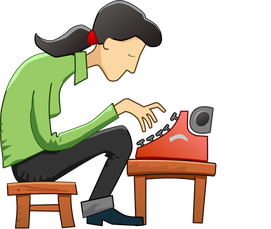 While it would be nice to think that readers buy books solely based on the quality of the writing there has to be other factors involved. It can be the only explanation for some of the dross that makes it into best seller lists alongside much better written books and why some very good books never make it. For example, let’s say that a new author publishes their very first book. None of the reading public will ever have seen the author’s name before and can’t have read any of the author’s work, so how will they decide whether or not to buy the book? There is no doubt that marketing plays a big part in this. If the author is published by a major publishing house the publisher will put a lot of money into getting the name of the book out there in front of the reading public. Adverts have to be paid for; review copies have to be sent to newspapers, magazines, radio and TV stations etc. Authors are sent on book signing tours etc.  Best selling "author" Katie Price Best selling "author" Katie Price Based on the marketing blurb, readers may take a chance and shell out some of their hard earned, but in effect they are buying the publisher, not the book. And it works; Katie Price has sold a lot of very poor-quality books. Well, her ghost writers have anyway; she just gets the lion’s share of the royalties. But that doesn’t account for why some books released by smaller publishing houses, or even self-published books, also make it into best seller lists despite the minuscule amount of money spent on marketing them. The readers’ decision won’t be based on the quality of the author’s writing because, with a first book, they can’t have read any previous work on which to base that decision. It is also unlikely to be based solely on the few pages that Amazon allows the potential buyer to read using their “look inside” feature. As both a reader and an editor I know that a promising first few pages doesn’t necessarily lead to 300 good pages. Many authors, even quite well-established ones, are unable to maintain their writing quality for that long and some start to stumble after just 20 or 30 pages. By 50 pages I’ve already binned the book and gone looking for something better written.  Some Indie authors will already be aware of this phenomenon. Having submitted an extract as per an agent’s submission guidelines, they get a request for the full MS. They are elated, naturally, but then brought down to Earth with a bump when the full MS gets rejected. Learn from that – because what the agent is effectively saying is that you couldn’t maintain a consistent quality of writing for a full-length book. So, if the decision isn’t going to be based on the quality of the writing, what is it going to be based on? You would think that price might have something to do with the decision, but it doesn’t appear to do so. When it comes to the price of books we live in a strange world. A pint of beer costs around £4 and a large glass of wine (is there any other sort?) over £5. A self-published e-book, however, will retail for anywhere between 99p and £5 depending on the author’s knowledge of pricing strategies and their vanity. Now, which is going to last longer and offers more potential for enjoyment, the pint of beer/glass of wine or the book?  Well, let me put it this way. In my experience, after 6 months I find it easier to recall a good book (or even a bad book) than I do to recall the qualities of a specific pint of beer or a specific glass of wine. There is another factor involved here as well. If I really enjoy a book, I may go back a few months or years later and read the same book a second time. I’ve read Lord Of The Rings far more times than is healthy for a grown man. But I can’t go back and enjoy the same pint of beer or glass of wine again, not for free anyway – I have to buy another one and, thanks to inflation, it will cost more. So, if people won’t shell out the paltry sum of 99p to read an author’s first book what other factors are there? 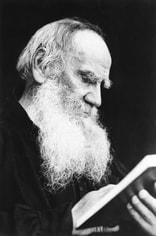 Leo Tolstoy Leo Tolstoy I go back to my argument about the word count. Is the reader truly getting value for money, or will they feel intimidated by the “thickness” of it? War and Peace is about 590,000 words long. When Tolstoy first had it published it was released in 4 volumes and a 2 part epilogue. If you want to buy a modern copy it would be more likely to be published as a single volume. In value for money terms you would think that it would be flying off the bookshelves, but it isn’t. Why not? It’s an acknowledged masterpiece after all. Well, perhaps people feel intimidated by its size. Let’s look at a more modestly sized classic, also by Tolstoy: Anna Karenina. Not many sales for that these days though it is perhaps one of the greatest romantic stories ever told. Length? 350,000 words. Hardly lightweight. Remember, I am also talking about e-books here, where you can’t “see” or feel the thickness of the book. 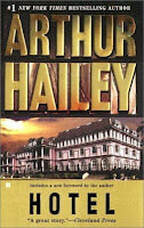 But you can. Because Amazon helpfully tells you, as part of their product description, how many pages long the book is As a guide, 80,000 words gives you a paperback book of about 290 pages, so 120,000 words would be about 435, big enough to qualify as a “blockbuster” in the Arthur Hailey mould. The sort of book that will not only last you for a whole holiday, but also for the cancellation of your flight due to a volcanic eruption and a 24 hour rail strike when you get back to the UK. The Kindle version of Arthur Hailey’s “Hotel” is actually 485 pages long. Perhaps that’s why he rarely features in the best seller lists any more. That and the fact that he died in 2004. 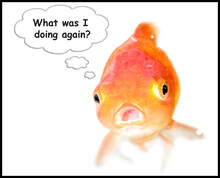 The sad truth is that the attention span of some readers isn’t that great. They’ll read 300 pages but 301 will defeat them. That presents the author with something of a problem. Do you disregard those readers and concentrate on those that will stay the course, in which case you are placing an artificial ceiling on your sales volume. Or do you take another course of action? Maybe you do what many authors are doing these days and write your books as a series; telling the story in 300 page chunks. You wouldn’t be the first: remember Tolstoy and War and Peace? It’s now common practice and one I have adopted for 2 separate series I have written. There can be no doubt that the margins for success for the new author are very narrow and seemingly quite arbitrary. It therefore makes sense, to me at least, not to do anything that might put the potential reader off buying a book and that includes thinking about exactly how long the book should be. Let’s face it, the average story could be told on a single page of A4, yet we expect a bit more than that. So the book should be neither too short (poor value for money) nor too long (too “weighty”). For me that means between 80 and 90,000 words. It’s entirely up to other authors where they draw their lines. If you have enjoyed this blog, or found it informative, be sure not to miss an edition by signing up for our newsletter. Just click the button below. And if you do - we'll send you a free ebook of your choice (from those we publish, not from the entirety of the publishing world).  Why do so many authors suffer from “Imposter Syndrome”? It seems that every other Tweet or Facebook post that I see from authors doubts their ability to write, yet they are unlikely to choose writing as a career (or at least an ambition for a career) unless they actually are able to write in a coherent manner. I’m not talking about false modesty, or “humblebragging” as it is sometimes known, which I also see a lot of. That is a whole different thing. A typical humblebrag would look something like “I can’t believe it! I’ve just been asked for a full MS from an agent!” (the exclamation marks are typical of humblebragging punctuation). The use of “I can’t believe it” doesn’t make the brag about being asked for a full MS any less of a brag. 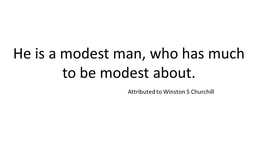 I’ve got nothing against the bragging part of it. If an author has been asked for a full MS by an agent, or has just signed a publishing deal, or has just sold the first copy of their book, then that is something worth bragging about. No, it’s actually the “humble” part I don’t like. The author isn’t fooling anyone with it. Own it, boys and girls; just own it. But imposter syndrome is something very different. Imposter syndrome is a feeling that successful people get that they aren’t worthy of the accolades that they are receiving. They feel that they don’t deserve it and that it has all been a big mistake and one day they’re going to get found out.  Most common amongst women and people of colour. Most common amongst women and people of colour. The term was first used by psychologists Pauline Clance and Susanne Imes in their 1978 research paper on the subject. They noticed that a lot of their female students seemed to feel that they didn’t deserve their places in college, even though they were more than capable. Their research was mainly conducted on women, who seemed to suffer a lot from imposter syndrome, possibly because women have historically had their abilities questioned (especially by men), so they have come to question it themselves. Later research found similar behaviour in people of colour for pretty much the same reason. More recent research has shown that anyone can suffer from imposter syndrome, but it is more common amongst women and people of colour. "But why do so many authors appear to suffer from it? " At its worst, imposter syndrome can lead to mental health issues because of the anxiety it causes sufferers. At its best it creates self-doubt, which is demotivating and it can lead to self-sabotaging behaviour, such as perfectionism. It doesn’t matter how many times people tell sufferers that they are good at what they do, imposter syndrome will always undermine any sense of achievement. But why do so many authors appear to suffer from it? There are a couple of reasons why we do suffer. One of the greatest is family and friends who don’t seem to think we have what it takes to write a book. They can believe in us as carpenters, plumbers, bank managers, marketing executives or whatever because we are, or were, employed as those. But you have to be special to be an author, right? Actually, no, you don’t have to be special, as any author can tell you. All you have to have is an idea, a basic sense of plot and character construction (both of which can be learned) and some basic written English skills.  You - an author? You - an author? But that lack of faith in us can undermine our own view of ourselves, especially if said friends and family haven’t actually read our books, so they continue to doubt us without having any evidence of our true capabilities. It goes back to the research carried out by Clance and Imes, where people (generally males) didn’t have faith in the capabilities of women, so women tended to absorb that lack of faith and reflect it back upon themselves. Just try being blond as well and see how much worse that feeling might be. But I think that the other main reason is that we are too ready to compare ourselves to the great figures of literature and we don’t feel we measure up well. And I think this stems from the way literature is taught in schools. This creates false comparisons. 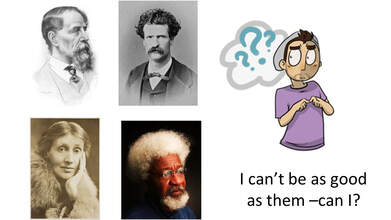 In all professions there are leading lights; the great movers and shakers who change their industry or redefine their art in some way. Let’s keep away from writing for the moment and use music as an example. Mozart, Beethoven, Chopin and similar figures are held up as the benchmarks against which all other musicianship must be judged, or so we would be led to believe if our high school music teachers had their way. I’m not going to question the abilities of those composers, they were undoubtedly great, but that doesn’t mean that every other composer or musician isn’t also competent. Our orchestras are full of competent musicians, of which a few will be recognised as great soloists. Some might even earn the title of “Maestro” or “Maestra”. But that doesn’t mean the rest are bad. We can extend the argument into the realm of pop music. Lennon and McCartney wrote great songs and the Beatles were a great band. But that doesn’t mean that no one since has written a great pop song, nor that any band since wasn’t as good as The Beatles. By and large it is the paying public who decides which bands are great and which aren’t – not high school music teachers.  Just how much do I suck? Just how much do I suck? The same applies to literature. It is the book buying public that decides who is a “great” author, not English Literature tutors. The teachers can examine a book and tell you why it is well written and why it was hailed as a “classic”, but that is not the same thing as the author being popular. If it were, then Dickens and Twain would always be in the best sellers lists and no one would ever have heard of Dan Brown. If you only compare yourself to Charles Dickens, Mark Twain or Virginia Woolf, you may feel like an imposter. The same applies to modern writers. We’re not all going to win the Booker Prize or the Nobel Prize for Literature. But just because you aren’t spoken of in the same way as the winners doesn’t mean that you are unworthy of any success you may achieve. Stop beating yourself up, as the saying goes. If readers are buying your books and you are getting good reviews, it means you are a good writer. Enjoy that feeling.  Just because your books don’t make it into the Sunday Times (or New York Times) best sellers list, it doesn’t make you an imposter. You have to sell around 100,000 copies to make even the lowest entry into those lists and very few authors manage that in a year (about a hundred, in fact). So, if you only sold 90,000 copies, it doesn’t make you an imposter. And even if you only sold 1 copy, it doesn’t make you an imposter. All that means is that you haven’t yet been discovered and you need to do more marketing to get your books in front of the reading public’s noses. But above all you must remember that you chose to be a writer. No one puts a gun to an author’s head and makes them write. What made you choose to write was the desire to tell stories. And so long as you continue to tell stories, you will never be an imposter. If you have enjoyed this blog, or found it informative, be sure not miss future posts by signing up to our newsletter. Just click on the button below and you will also qualify for a FREE eBook.. 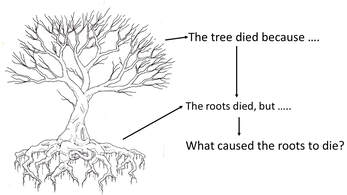 "Root Cause" "Root Cause" There is something in the field of quality management called “root cause analysis”. You may now be asking what this has to do with writing books. I’ll get to that in a minute or two, but first of all I’ll have to explain what root cause analysis is and how it works. Basically, it is an assumption that when something goes wrong in a process, the visible signs are very rarely the root cause of what went wrong. To make sure that the same problem never occurs again, you have to find the root, or real, cause of the problem. It is the difference between treating the symptoms (a headache, say) and treating the cause (a brain tumour). Aspirin may temporarily relieve the pain of the symptom, but it won’t cure the brain tumour. Let me give you a worked example.  Guess the cause! Guess the cause! Car A is driving along the road and approaches a stop sign. Being driven by a good driver, the car is brought to a controlled stop in the right place. Car B, following on behind, then crashes into the back of Car A. The assumption, at this point, might be that the driver of Car B wasn’t paying adequate attention and therefore didn’t see Car A coming to a stop and ran into the back of him. Only by asking questions would it be possible to establish if that assumption was correct. In quality management a tool that is used is called “The 6 Whys”. Basically it means that by asking six “why” questions in succession it is possible to find out what the real cause of the accident was. So, question 1 might be “Why did the driver of Car B fail to stop? There are several possible answers, only one of which will be true. For the sake of this illustration, I’ll say that the actual answer is “Because the car’s brakes failed.” The second why question would therefore be “Why did the brakes fail?” Again, there are several possible answers, only one of which will be true. If you ask a further 4 “why” questions in this vein you might get to an answer that is “Because there is a flaw in the manufacturing process for a minor component that hadn’t been previously identified”. Obviously more evidence than just one accident would be needed before that conclusion could be drawn, but gathering that evidence, such as data on other accidents, would be part of finding the true answer.  Brake failure? Or inattentive driver? Brake failure? Or inattentive driver? So, the root cause of the accident is that flaw in the manufacturing process and unless that flaw is corrected, other accidents involving brake failures are bound to occur. That is a long way from “Driver B wasn’t paying attention to his driving”. It is just that sort of process that leads to product recalls on cars, sometimes several years after production started, to rectify defects that have been subsequently identified. If you work in a place where the same problems keep on occurring, time after time, then you might want to carry out this exercise for yourself, or in conjunction with your colleagues. By identifying the root cause of those problems – and getting them fixed - you could earn yourself some kudos (and all that goes with it). Even if Driver B wasn’t paying attention, to get to the root cause of the accident we would have to ask another 5 questions. It might turn out that he is suffering from undiagnosed ADHD, for example, rather than just being distracted by his phone ringing.  It's not just icebergs that have hidden depths. It's not just icebergs that have hidden depths. But that leads us onto the real subject of this blog: What does this mean for you as an author? It means that you can build multi-layered characters by showing your readers that what they see on the surface isn’t necessarily what is going on underneath. In characterisation, we call this “having hidden depths”. Let’s take a typical character trope, the cop who drinks too much and prefers to work alone. It’s easy to establish that he drinks too much because his partner got killed in a shoot-out and that he wants to work alone because he’s reluctant to get emotionally attached to other cops in case the same thing happens again. Those are just the answers to the first 2 or 3 “whys”. But if you were to ask yourself a 4th why you might find out that the cop has suffered major losses in his life before. A 5th why might be that he feels responsible for the earlier loss and the 6th why is because he was blamed for the loss even though he was too young to even know what loss was about. 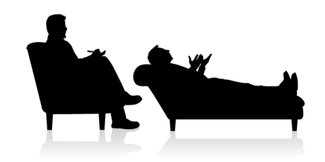 Anyone who has ever gone through counselling (therapy as our American cousins call it) may recognise the depth of questioning necessary to reveal those sorts of emotional scars. But as an author, you can build that character from the ground up to give them hidden depths and secret anxieties. More importantly, you develop them from being a trope into being a ‘real’ person. You don’t have to reveal all that to the reader, at least, not all in one go. It may be something that you keep to yourself or reveal over a series of stories. But when it comes to deciding how your character(s) will react in any situation you put them into, you can draw on that depth of understanding of their emotional baggage to make them more interesting, to make them react consistently and to make them believable. 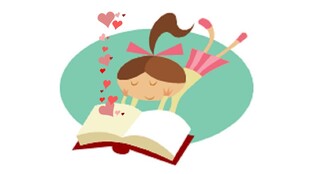 Emotional engagement. Emotional engagement. In many novels it is very difficult to understand what motivates a character if the author hasn’t actually explained it. Because of that it is difficult to believe in the character and a lack of belief creates a lack of emotional engagement from the reader. And if the reader doesn’t engage with the character on an emotional level, they don’t care what happens to them and they stop reading the book. That might not matter if you only write one book. After all, the reader has already bought it. But if you want to write a second book, it is important. If your first book didn’t engage the reader, they won’t buy your second book. And if they post a bad review of your first book, it will impact sales to other people for all your books, even if they are in a different genre. So having interesting characters is a big deal. This is the difference between plot led and character led fiction, which is an on-going debate in writing circles. Here at Selfishgenie we’re very much in the ‘character led’ camp because a good plot can’t make up for badly drawn characters. Good characters, however, can save a poor plot – as many a Hollywood movie has demonstrated. Why would my character do that? The place to start in this “root cause” journey is with the initiating event, as it’s known. The things that gets the story moving and gets the character involved in the action. Ask yourself “Why would my character do that? What is their motivation? Is that motivation enough to keep them going when the going gets tough?”  A simple Hobbit A simple Hobbit These are questions I asked myself a lot when reading Lord of the Rings. As in “Would a simple Hobbit really keep going in the face of all that opposition? Wouldn’t they just throw the flipping ring into the neatest river and hope for the best?” I’ve read the book several times and the character of Frodo always makes me ask those questions and I’ve never really reached a satisfactory answer. Strength of character and determination to succeed don’t even begin to satisfy as motives. In some types of plot, the triggering event goes with the territory, because it’s the character’s job: police stories, spy thrillers etc. In those cases we have to take a step back and ask questions about why the character got into their job in the first place, as well as why they stay in it when things are going so badly. When we give feedback to authors who submit their manuscripts to us, we often refer to characters being “two dimensional”. It is the deeper motivation of characters that give them their third dimension and make them more human, more realistic. This is especially important if the characters are to go beyond the everyday experiences which we all go through and into worlds where they place themselves in mortal danger. We know we couldn’t do those things – but we have to believe that the character(s) can. Motivation is what makes us believe and motivation comes from deep within – whether we are real people or characters in books. I’m not saying that this sort of analysis is the only way to build good characters – there are many others, I’m sure. But if you are struggling with creating believable characters, this simple tool, "the 6 whys", may help you to add new dimensions to them. If you have enjoyed this blog or found it informative, why not make sure you don't miss future editions by signing up for our newsletter. Just click the button below and you will also qualify for a FREE eBook. |
AuthorThis blog is compiled and curated by the Selfishgenie publishing team. Archives
June 2025
|
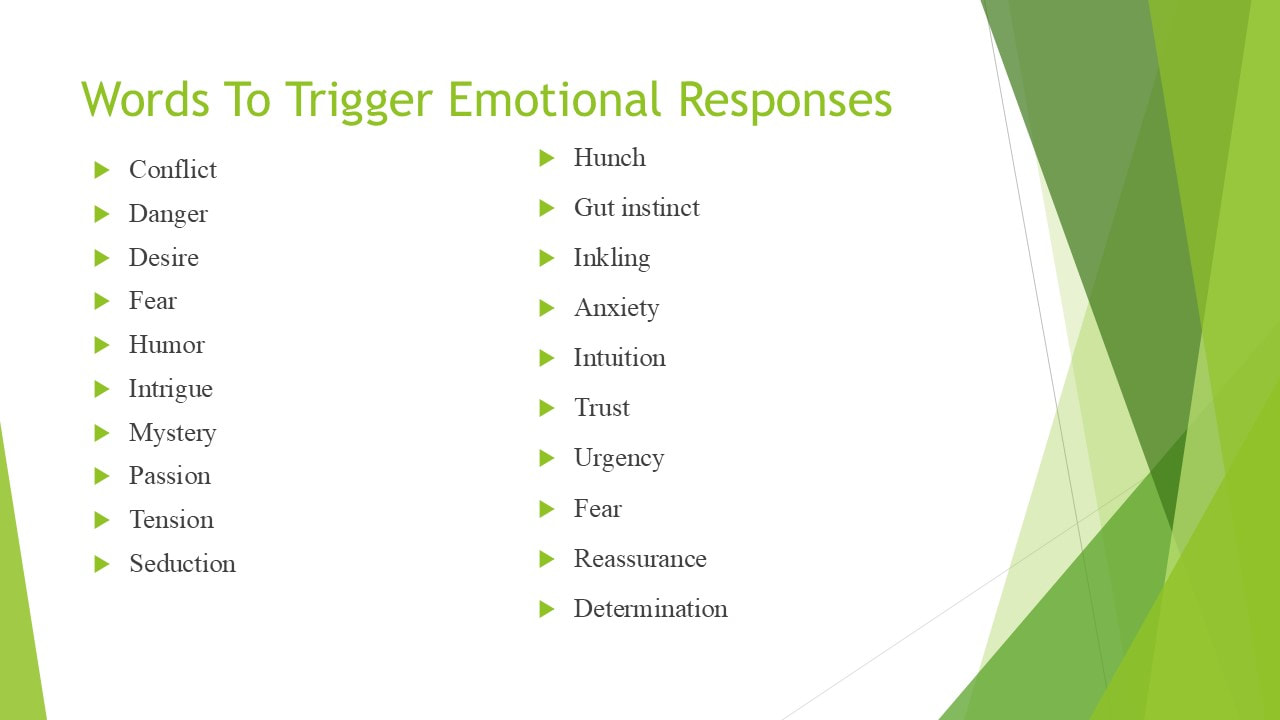

 RSS Feed
RSS Feed